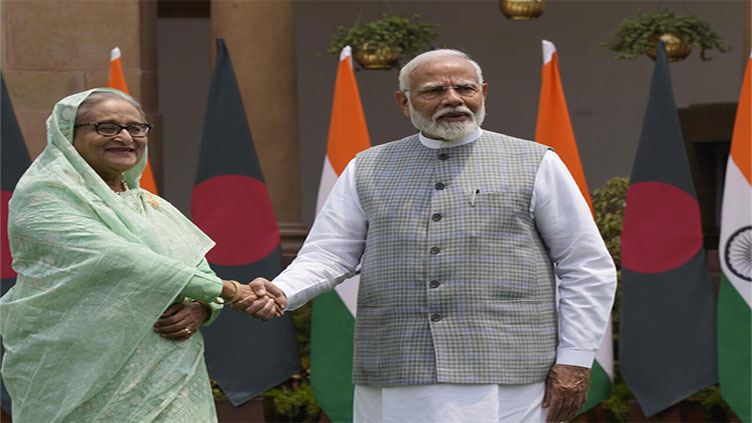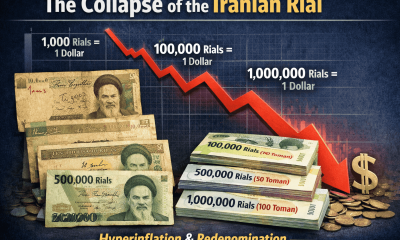
DHAKA (WSN) — Indian Prime Minister Narendra Modi and Bangladesh’s Sheikh Hasina have long overlooked democratic erosion in each other’s countries to maintain their close relationship. With Hasina now removed from power, India’s concern about the safety of Bangladesh’s Hindu minority seems hypocritical.
Agontuk, a 21-year-old architecture student from Dhaka, first noticed social media posts about attacks on Bangladesh’s Hindu community and quickly checked on a nearby building predominantly occupied by Hindus.
Agontuk had been involved in the student movement that led to Hasina’s removal. However, after the violent crackdown that resulted in over 300 deaths, he chose to avoid street protests and instead worked with a team of student volunteers to evade online surveillance and internet blackouts, aiming to attract international media attention.
He emphasized that targeting Hindus was never the intention of the student movement and expressed alarm at claims of “pogroms” and even “genocide” against the minority community.
“I was surprised because we live in harmony. We don’t want chaos between us. We checked the reports to verify their authenticity,” Agontuk said in a phone interview from Dhaka.
After Hasina’s ousting on August 5, Agontuk found that the Hindu residential area in Dhaka’s Nobinbag neighborhood was quiet, with no reported attacks. Over the following days, he continued to monitor the area and reported no incidents, based on communications with residents and local shopkeepers.
As reports of attacks on Hindu temples and businesses spread, especially through social media and Indian news channels, Agontuk stayed in touch with contacts across the country. “They have assured me that they are keeping an eye on the temples, and no violations have been reported,” he noted.
Following Hasina’s departure to India, mob violence erupted, targeting her Awami League party members and symbols of her political legacy, such as statues and a museum dedicated to her father, Sheikh Mujibur Rehman.
Hindus, who make up about 8% of Bangladesh’s nearly 170 million people and have traditionally supported the Awami League, were at risk of being targeted by rioters. In the week after Hasina’s removal, there were reports of at least 200 attacks on Hindus and other minorities, according to the Bangladesh Hindu Buddhist Christian Unity Council.
The exact figures and reasons behind the violence remain unclear. Police, who had been criticized by students for their crackdown on protesters, also suffered casualties and went on strike following Hasina’s departure.
Rumors and misinformation, particularly from social media, fueled fears among minorities. Fact-checkers identified several false posts, many traced to bots and trolls from India.
Religious tensions, a historic issue in South Asia, resurfaced amid the chaotic political landscape. The fall of Hasina has exposed a complex geopolitical struggle in South Asia that the international community must now confront.
Muhammad Yunus, a Nobel Laureate who accepted a role as chief adviser to a transitional government, quickly recognized the situation’s gravity. Yunus emphasized restoring order and ensuring equal rights for all citizens.
Many Bangladeshi students and civil society members are working to maintain order and protect minority rights. Social media is filled with images of students safeguarding temples across the country.
Shafqat Munir, a senior fellow at the Bangladesh Institute of Peace and Security Studies, highlights the importance of inclusivity and pluralism in the post-Hasina era. “We must ensure that no particular group is targeted due to their faith,” Munir said, referring to the ongoing unrest and misinformation.
However, skepticism remains among Indian media and commentators, who are unconvinced by reassurances. Indian news outlets have focused on the Jamaat-e-Islami party and its alleged role in the crisis, despite its history of never securing a parliamentary majority in Bangladesh.
Bangladeshi student leaders have expressed a desire for fundamental change and distrust in mainstream political parties, including the Awami League, BNP, and Jamaat. Their choice of Yunus to lead an interim administration reflects their wish for a break from past political dominance.
Indian commentators, influenced by narratives that Hasina was a bulwark against Islamist forces, remain wary. “Many Indians view Hasina as the only barrier to a destabilized Bangladesh,” said Michael Kugelman of the Wilson Center.
Hasina’s downfall was a result of years of mounting public discontent, exacerbated by accusations of electoral unfairness in January’s parliamentary elections. While the US criticized the elections, India and China congratulated Hasina, with Modi praising her despite concerns over the election’s integrity.
India’s close ties with Hasina, which included significant trade and security cooperation, were seen as over-reliant on one leader. Hasina also tried to balance relations with China, but her recent visit to China ended poorly, affecting her stance on a water project with India.
Bangladesh’s relationship with India, forged from historical ties, has become strained under Modi’s leadership, particularly with his party’s controversial anti-Muslim policies. Despite this, Hasina maintained a working relationship with Modi, remaining silent on India’s domestic issues.
As Hasina’s presence in India poses a diplomatic challenge, India faces pressure to handle her status carefully. Analysts suggest that India may consider sending Hasina to a third country to avoid diplomatic complications.
In Bangladesh, the future remains uncertain. Agontuk remains hopeful despite the ongoing tensions. “The protest was aimed at ensuring a brighter future for Bangladeshi students,” he said. “We are optimistic about the future and look forward to positive changes.”











